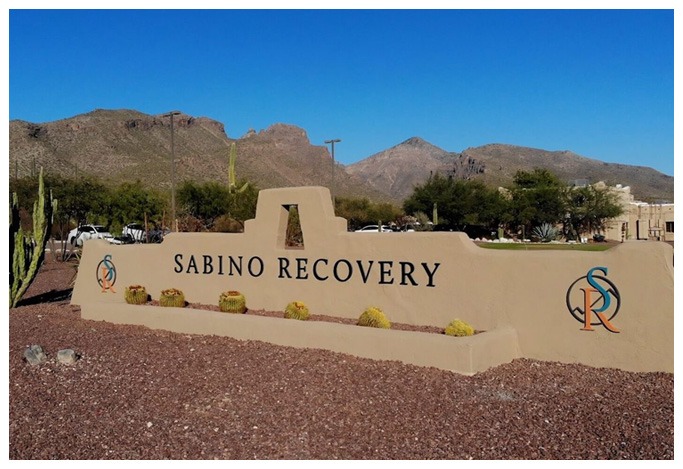Borderline Personality Disorder Treatment in Tucson, AZ
Signs and Symptoms of Borderline Personality Disorder
- Rapid mood swings
- Fear of abandonment
- Chronic feelings of emptiness
- Intense anger
- Difficulty trusting others
- Paranoia or dissociation under stress
People with BPD often struggle with self-image and may engage in self-harming behaviors or suicidal threats. The symptoms of BPD can severely impact daily functioning and relationships, making early diagnosis and dual diagnosis treatment essential for effective management.

Is Mental Health Impacting Your Life?
Take The First Step To True Healing Today!
Causes and Risk Factors of Borderline Personality Disorder
Risk factors for BPD include a family history of BPD or other mental health disorders, childhood trauma (such as abuse or neglect), and unstable or chaotic relationships during development. These experiences can disrupt emotional growth, increasing the likelihood of developing BPD symptoms later in life.

How Borderline Personality Disorder Can Affect Daily Life
Individuals may experience intense mood swings, impulsive behaviors, and a constant fear of abandonment, which can strain interactions with others. These emotional challenges often lead to poor self-image, difficulties in managing stress, and self-destructive actions. Every day situations may feel overwhelming, and the lack of emotional control can interfere with decision-making. This can lead to social isolation and overall reduced quality of life.
The Importance of Early Diagnosis and Treatment for BPD
With timely intervention, individuals can learn to manage their emotions, reduce harmful behaviors, and build healthier relationships. Early support also decreases the risk of co-occurring conditions (like depression or substance abuse), promoting a more stable and fulfilling life.
Treatment Options for Borderline Personality Disorder
Evidence-based therapies for Borderline Personality Disorder (BPD) tend to focus on helping individuals manage intense emotions and improve relationships. Effective therapies include Mentalization-Based Therapy (MBT), which helps individuals understand their own and others’ mental states. Schema Therapy addresses deep-rooted patterns of thinking and behavior. These approaches offer structured, proven strategies to reduce symptoms and enhance emotional stability.
Dialectical Behavior Therapy (DBT) is an evidence-based treatment that was specifically designed to treat individuals with Borderline Personality Disorder (BPD). It combines cognitive behavioral techniques with mindfulness practices to help individuals manage intense emotions and reduce their self-destructive behaviors.
DBT focuses on four core skills: mindfulness, distress tolerance, emotion regulation, and interpersonal effectiveness. Through individual therapy, skills training groups, and/or phone coaching, patients can learn to navigate emotional challenges more constructively. DBT has been shown to have the potential to significantly improve emotional stability, relationships, and overall quality of life for people with BPD.
Individual and group therapy are key components in treating BPD. Individual therapy offers a one-on-one setting where clients can explore personal issues, build coping skills, and receive support tailored to their needs. Therapists can help clients understand emotional patterns and develop healthier responses.
Group therapy complements individual therapy by providing a supportive environment in which to practice new skills and connect with others facing similar challenges. It can encourage shared learning, improves social skills, and reduces feelings of isolation — all crucial factors in long-term BPD management.
Medication management for Borderline Personality Disorder (BPD) is often used alongside therapy to help control specific symptoms. These can include mood swings, anxiety, or depression.
While no single medication is approved specifically to treat BPD, psychiatrists may prescribe antidepressants, mood stabilizers, or antipsychotics based on individual needs. Regular monitoring and adjustments ensure medications remain effective and minimize side effects. Medication combined with therapy provides a more balanced approach to symptom management, and can help individuals maintain emotional stability and improve their daily functioning.
Family therapy plays a vital role in the treatment of Borderline Personality Disorder (BPD) by improving communication and understanding among family members. It helps loved ones understand and recognize the challenges of BPD, can reduce conflict among family members, and create a more supportive home environment.
Through guided sessions, families learn skills to help them respond more effectively to emotional distress and crises. This collaborative approach not only enhances the individual’s recovery process but can also strengthen relationships, reduce stress, and foster a more stable and compassionate family dynamic.
Holistic therapies for Borderline Personality Disorder (BPD) focus on healing the mind, body, and emotions through integrative approaches. Practices like meditation, yoga, equine therapy, and acupuncture can help individuals reduce stress and regulate their emotions. Nutritional therapy and exercise can play a role in stabilizing mood and improving overall well-being.
Complementary therapies (such as art and music therapy) provide creative outlets for self-expression and emotional processing. When combined with evidence-based treatments like Dialectical Behavior Therapy (DBT), holistic approaches can enhance recovery by fostering emotional balance and resilience.
Mindfulness can play a crucial role in managing Borderline Personality Disorder (BPD), by helping individuals regulate their emotions and improve their self-awareness. Techniques like meditation, deep breathing, and grounding exercises encourage present-moment focus, reducing impulsivity and emotional distress. By practicing mindfulness, individuals can develop healthier responses to triggers, fostering emotional balance.
Integrating mindfulness into daily life supports long-term stability and complements therapeutic approaches like Dialectical Behavior Therapy (DBT). It enhances distress tolerance, strengthens coping strategies, and promotes overall mental well-being.
Contact Our Admissions Team Today
Creating a Personalized Treatment Plan for BPD Recovery
Lifestyle changes, including mindfulness, exercise, and creative therapies, can enhance overall well-being for people with BPD. Maintaining support networks, such as family involvement and peer groups, play a crucial role in long-term recovery.

Long-Term Recovery: What to Expect After BPD Treatment
Sustained recovery requires adaptability, as challenges may arise that require using coping skills that may not feel natural. Developing healthy relationships and practicing coping mechanisms can foster resilience. Continued therapy, self-awareness, and structured strategies can help individuals experience lasting emotional balance and an improved quality of life.
Nationally Recognized & Accredited




Testimonials
![]()
![]()
![]()
![]()
![]()
Regina
I am so happy that I chose Sabino to begin my recovery. I have suffered for years from depression, anxiety, panic disorder, and PTSD. The programs that are offered here at Sabino have been truly phenomenal in helping me recover. I also appreciated the professional staff that are here on duty 24/7, which helps create a safe environment. Sabino Recovery uses effective “one on one” methods that meet each person’s individual needs because they evaluate and have a better understanding of your personal traumatic experiences. Thanks Sabino, I am truly grateful to you and the Sabino family.
![]()
![]()
![]()
![]()
![]()
J.A.
A beautiful facility! Staff sets the tone and kindness that residents easily follow. Thank you, Sabino Recovery!
![]()
![]()
![]()
![]()
![]()
Pamela
The program at Sabino Recovery works! I emerged from an accumulation of unrecognized emotions, issues of trust, and unresolved grief and loss. 35-days of effective integration of customized quality therapy reconnected my mind, body, spirit, and I am worth it! I had masked emotions and hurtful events for decades with alcohol. At Sabino Recovery I safely focused deep within to unleash harmful secrets and self-degradation. Tools of recovery were practiced, not just presented. Integrative therapies were tailored to my circumstances, thus were effective. This residential program is like no other. For me, Sabino Recovery delivered what was professed. I am forever grateful for this gift of healing.
![]()
![]()
![]()
![]()
![]()
Mike
Life changing experience. Wonderful staff. Wonderful program. Thanks for everything!
![]()
![]()
![]()
![]()
![]()
Darcy
It was great to begin my recovery in a group environment with so many knowledgeable nurses, therapists, BHT’s, and others around for support. The equine therapy, challenge course, family week, and daily therapies all work together seamlessly, allowing me to leave Sabino as a healthier and stronger person!

Resources for Individuals with BPD
Seeking Treatment for Borderline Personality Disorder in Tucson, AZ?
With a serene environment and expert clinicians, Sabino Recovery offers a holistic approach to healing. Support groups, family therapy, and individualized care empower clients to create lasting behavioral changes, strengthen relationships, and achieve long-term emotional balance. Contact Sabino Recovery today to learn how you can benefit from our compassionate support.




